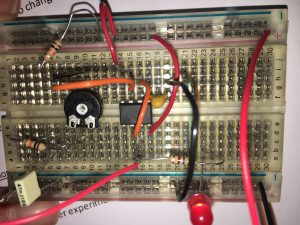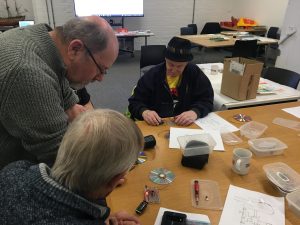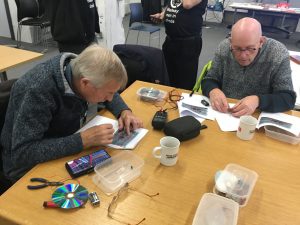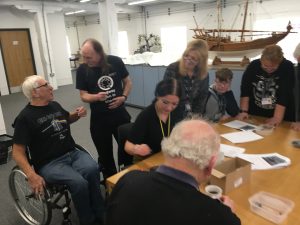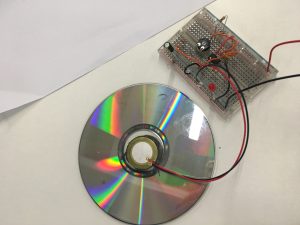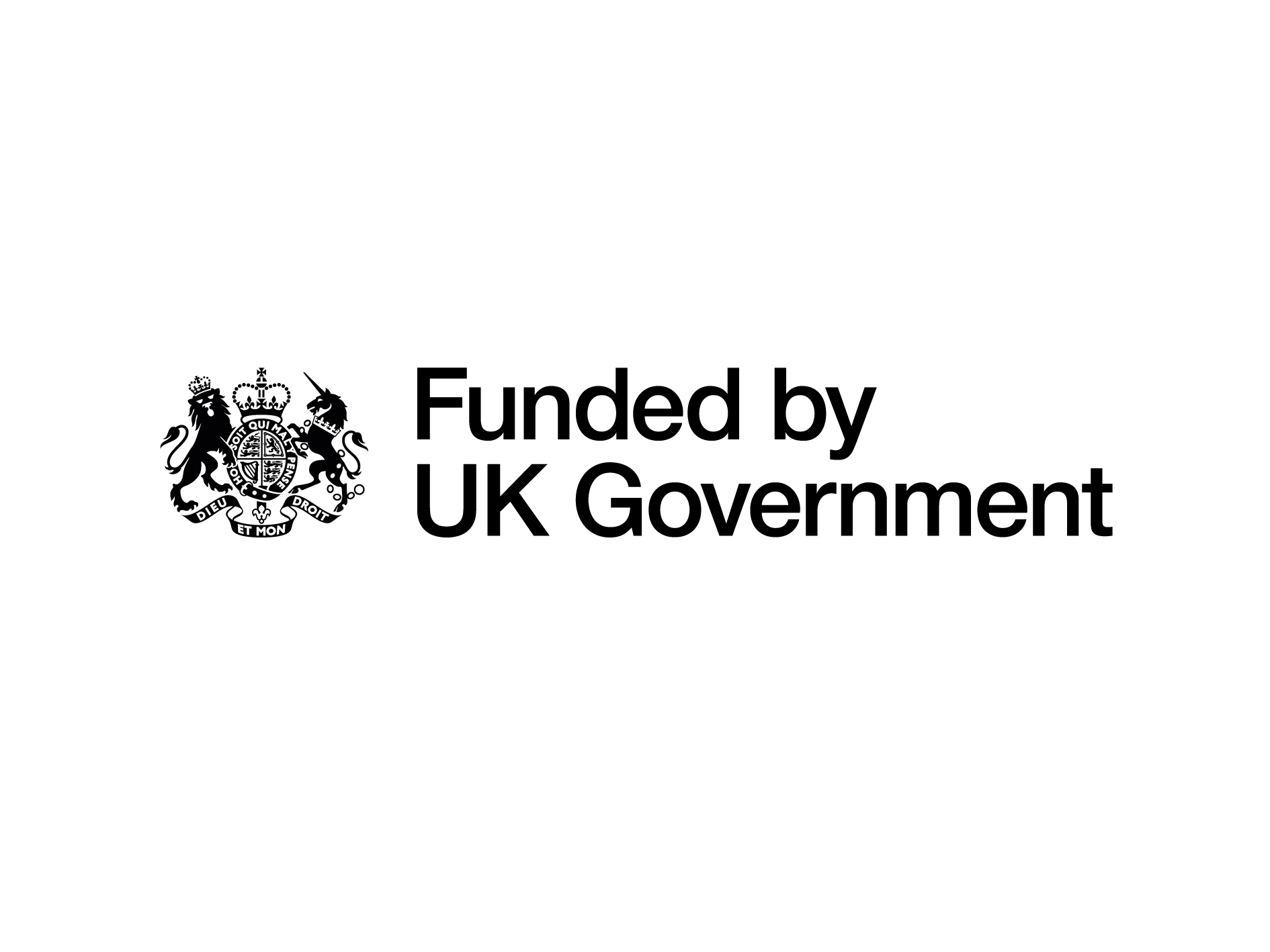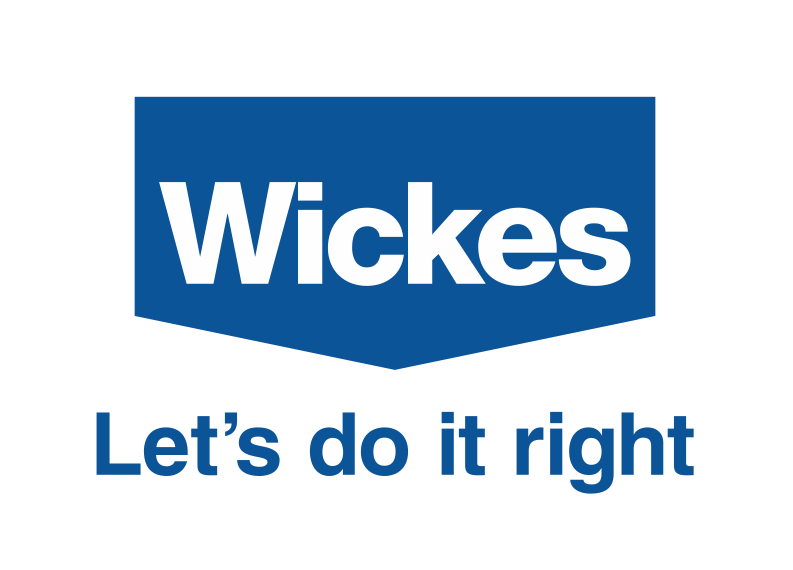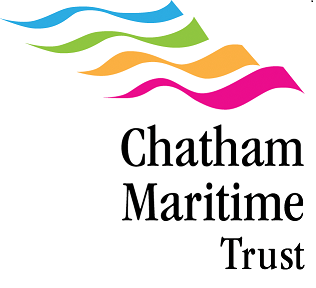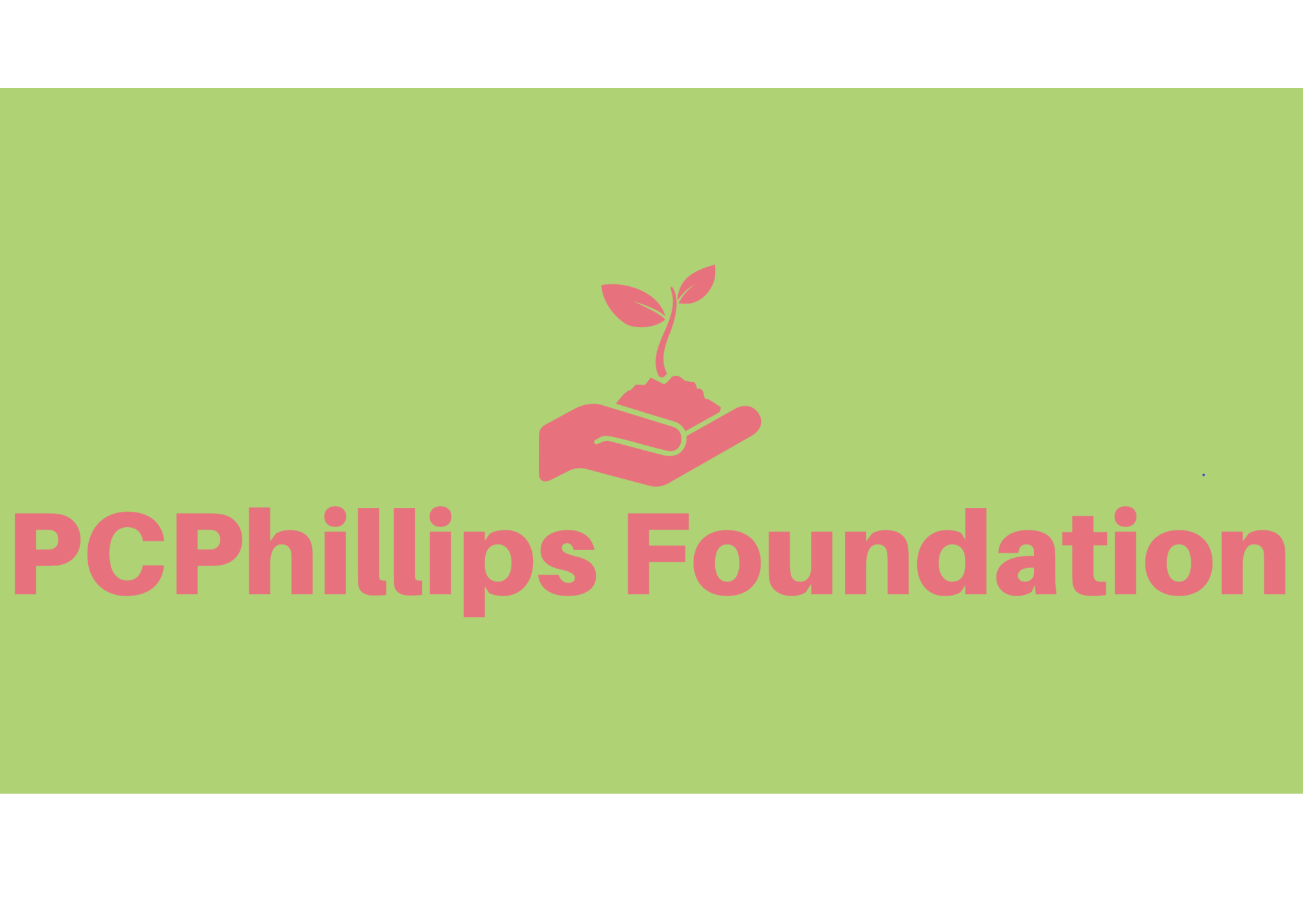FREE dub siren workshop
Wednesday 19 November 2025 at Chatham Library from 10.30pm – 12.30pm
This workshop is free for men (aged 18+) who live in Medway, are not in full time work or are studying. Fill in the form on this page to register your place on the workshop.
As the name suggests, dub sirens are popular in dub music, but are used by performers, mixers, composers and DJs in many kinds of contemporary music. At this workshop you’ll learn what components you need to make a basic dub siren and get help and instructions to build one. It looks complicated, but when you learn why the components work you can take the knowledge to create more complex circuits at home. You can learn about the history of dub engineering from the perspective of innovators and pioneers who pushed the boundaries of reggae music and transformed the role of audio engineering to evolve into the sounds we hear today. We will also play dub music, bring some audio engineering equipment and examples to dig into the culture surrounding this style of music.
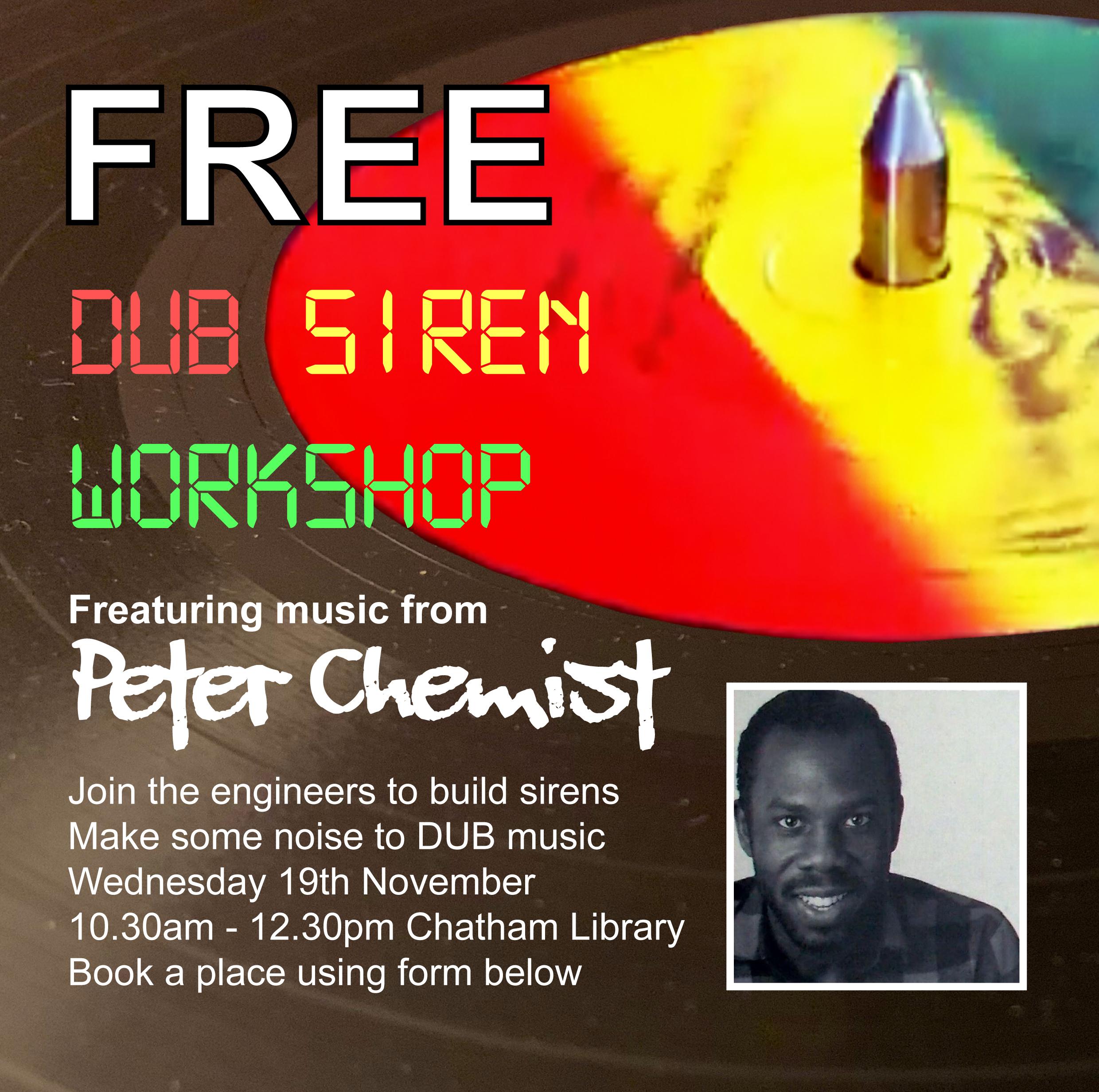
The event is on International Men’s Day. The power of music is a gift which we carry from birth to communicate, stimulate our system physically and mentally, get creative, create memories, and culture.
Why is music good for your health? The following text is from a 2020 research paper available from Harvard (Why is music good for the brain? – Harvard Health):
- Music listeners had higher scores for mental well-being and slightly reduced levels of anxiety and depression compared to people overall.
- Of survey respondents who currently go to musical performances, 69% rated their brain health as “excellent” or “very good,” compared to 58% for those who went in the past and 52% for those who never attended.
- Of those who reported often being exposed to music as a child, 68% rated their ability to learn new things as “excellent” or “very good,” compared to 50% of those who were not exposed to music.
- Active musical engagement, including those over age 50, was associated with higher rates of happiness and good cognitive function.
- Adults with no early music exposure but who currently engage in some music appreciation show above average mental well-being scores.
Here is a video of a similar workshop last year at Lordswood Library Hub:
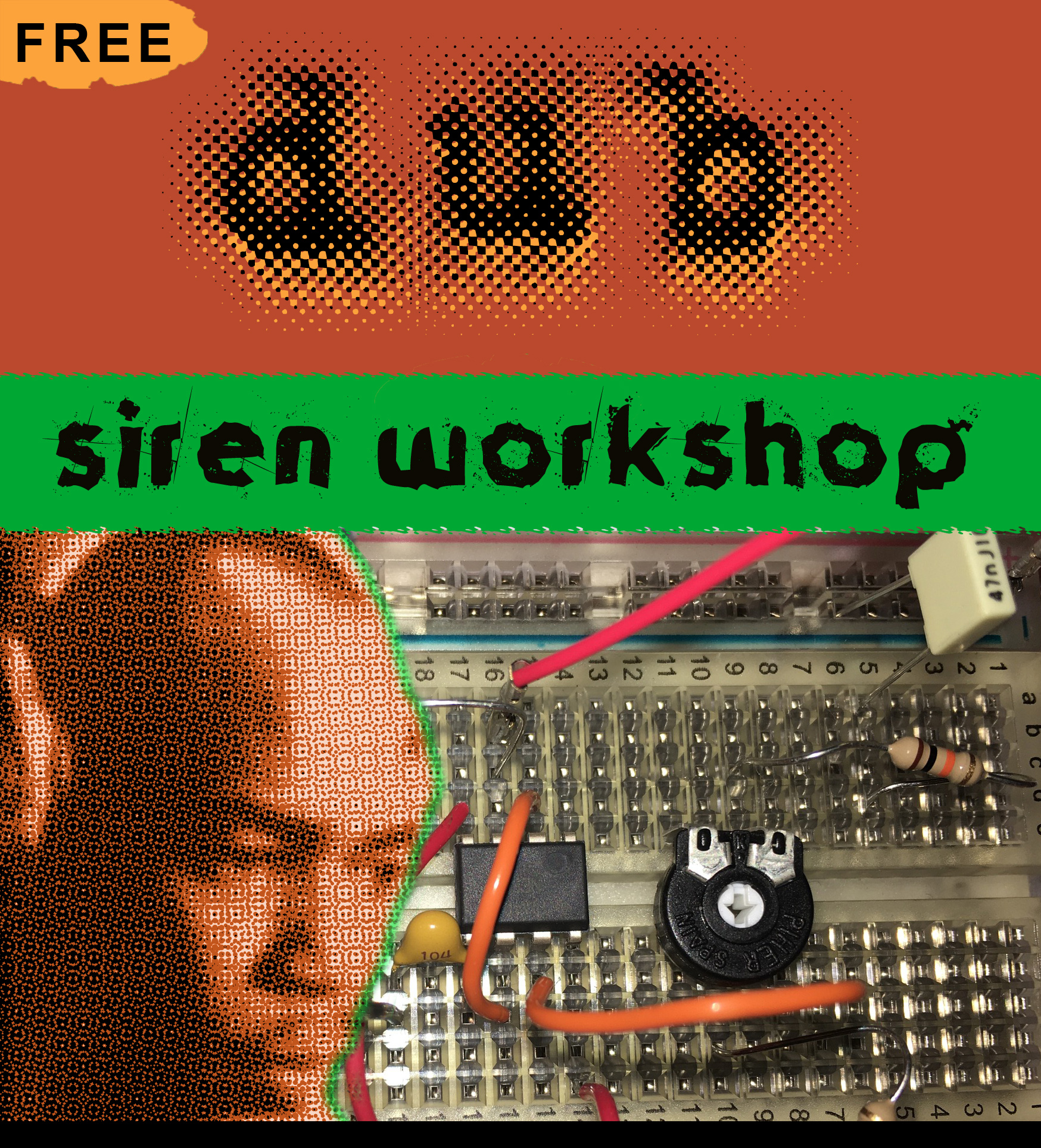
Please send us your registration form:
Click here for a link for Lordswood library with map
Here are some more links on music and health:
What is dub?
• The genre now called Dub emerged in Jamaica in the late 1960s/early 1970s when studio engineers (notably King Tubby and Lee “Scratch” Perry) began creating “versions” of reggae tracks: removing or drastically reducing the vocals, emphasising bass & drums, and applying echo/reverb/delay effects.
• From this stripped-down, experimental starting point, the mixer and engineer became as important as the musicians — the mixing desk became a creative instrument.
Why this matters
The shift from the musician being the primary creative to the engineer/producer as artist was crystallised in dub. The studio became an instrument.
Many modern production practices (filter sweeps, delay/echo as rhythmic device, bass-emphasis, remix culture) trace back to dub, consciously or unconsciously.
For both hobbyists and professionals: the tools and ideas developed in dub are still directly usable. Even budget-digital setups can replicate many of the classic dub sounds (spring reverb emulation, tape delay, filter sweeps).
Understanding the history helps producers make more informed creative choices: e.g., why heavy sub-bass matters, how space/echo can change feel, what versioning means culturally.
How has dub influenced music round the World?
• Punk / Post-punk: Dub techniques (echo, delay, filter sweeps, studio as instrument) found their way into UK punk/post-punk. For example, bands drew on the bass-heavy, spacious sound of dub in the late ’70s.
• Hip-hop / DJ culture: The soundsystem culture of Jamaica—with its emphasis on instrumental tracks, versions, live mixing, bass heavy sound—was a precursor to many elements of hip-hop and DJ culture.
• Electronic music / techno / ambient / drum & bass: Dub’s studio methods (filtering, echo/delay, remixing, isolating bass) heavily influenced electronic genres. For example, Basic Channel (early ’90s) are cited as applying dub’s spatial/engineering ethos to techno.
• Genres such as dub-techno, dubstep, jungle/drum & bass all have roots that trace back to dub’s manipulations of rhythm, space, bass and time.
• Global sound-system & bass culture: The idea of big-speaker rigs, sub-bass, immersive “sound room” listening environments (typical of Jamaican sound-systems) spread worldwide—from UK to Europe to Africa to Asia. Dub’s emphasis on bass, space and remixing made it adaptable to many regional reinterpretations.

Who is Peter Chemist and why showcase his work?
Peter Chemist has been working since the age of 14 as a sound engineer and producer with various genres, focussing initially on reggae artists, spending his early career alongside other pioneers of Dub in Jamaica. He then worked and toured other countries including UK and USA. He has recently been mixing, mastering and producing work with a local Medway band called The Objectors. He is building hope for many artists, who thanks to his dedication are reaching listeners on radio stations and platforms round the world.
His releases include:

See more here: Peter Chemist (Donovan Thompson) – Producer

